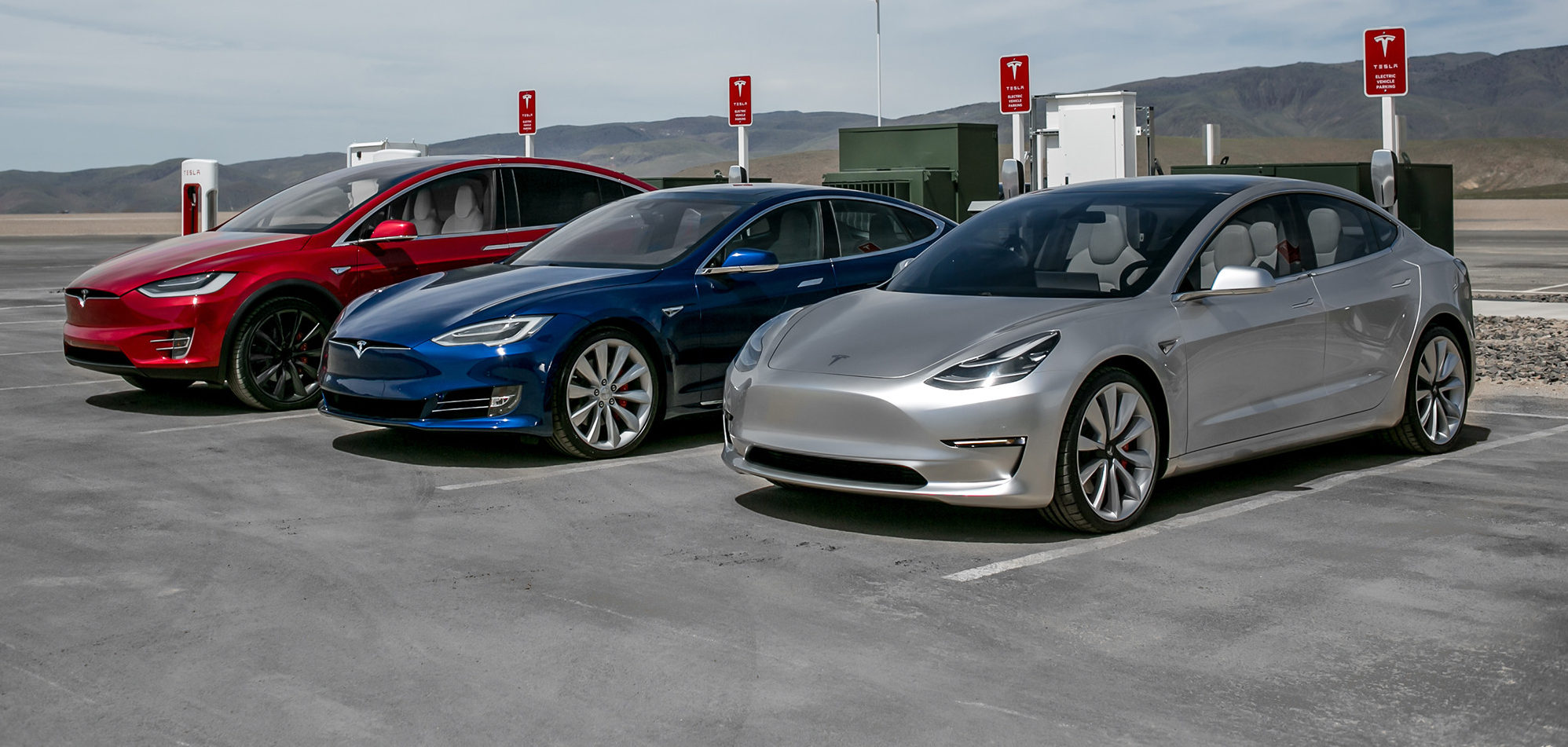
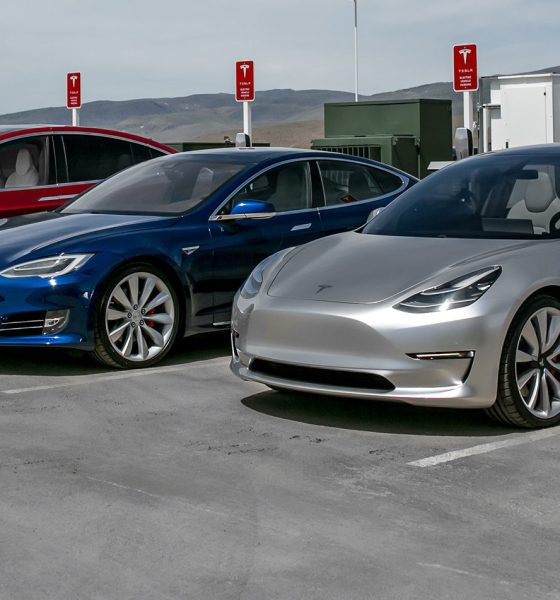
News
Tesla faces biggest challenge yet as oil industry fights to maintain its hold on US auto
Tesla might have overcome several notable hurdles this year, but the electric car maker is now facing what could very well be its biggest challenge yet in the United States. As the company hits its stride with the production of the Model 3 and as it prepares to ramp its energy business next year, a rather discreet movement is underway to ensure that America remains waist-deep in oil.
A recent expose published by The New York Times outlines an active campaign to roll back the country’s existing vehicle emissions rules. Earlier this year, the US government laid out a plan that aims to ease fuel efficiency standards in the country. The movement’s central point is simple — since America is so awash in oil, the country no longer needs to worry about energy conservation.
The publication’s investigation noted that the movement, which was supported by proposals in Congress and social media campaigns, is backed by some of the United States’ largest oil interests. Marathon Petroleum, the US’ largest refiner, as well as a policy network with ties to billionaire Charles G. Koch, contributed to help push the movement’s agenda. Overall, the creation of the proposal and its support from the oil industry is understandable, considering that the advent of electric vehicles threatens the bottom line of the industry. Less gas-thirsty cars on the road mean lower sales of gasoline. More pure electric vehicles on the road, such as Tesla’s electric cars, are an even bigger threat.
The US government’s initiative takes aim at the country’s emissions standards, which practically requires automakers to double the fuel efficiency of their vehicles by 2025. Under the government’s proposal, emissions standards would be frozen at 2020 levels. The NYT estimates that if the government’s planned rollback is implemented, it would increase greenhouse gas emissions in the United States by more than the amount of gases put out by midsize countries such as Austria, Greece, or Bangladesh in one year.
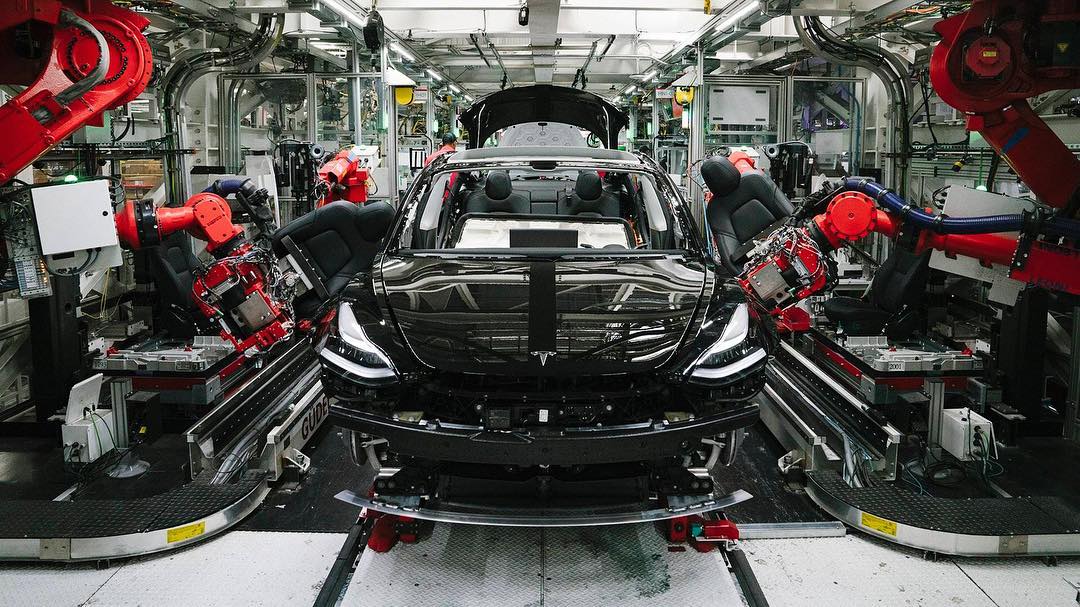
Lawmakers and delegations across the United States have backed the pro-oil campaign, with several groups sending letters to the Transportation Department to express their support. The publication noted that these letters featured much of the same phrasing, particularly a line directly referencing the preferences of American car buyers. “With oil scarcity no longer a concern, historically low gas prices, increasingly ambitious CAFE requirements, it is important that NHTSA and EPA review the mandate to ensure that the US is protecting consumers from higher costs and still allowing for choice in vehicles that best fit their needs,” one of the letters stated.
The oil-backed movement, though, is currently encountering some pushback from members of the government. Among these is Senator Tom Carper of Delaware, who expressed his criticism of the administration’s campaign. In a statement to the NYT, Carper noted that “oil interests are cynically trying to gin up support in Congress for the weakest possible standards to ensure that cars and SUVs have to rely on even more oil.” The senator added that “If this attempt is successful, the outcome will be a blow to the auto industry, consumers, and our environment.”
At the forefront of the resistance against the oil-backed campaign is California, home to Tesla’s headquarters and electric car factory. California pledged to stick to stricter emissions standards while maintaining an initiative to push the adoption of zero-emissions vehicles. Thirteen states currently follow CA’s lead, representing about 35% of the United States’ nationwide car sales.
At the heart of the movement is the notion that American car buyers prefer large, gas-guzzling vehicles such as full-sized pickup trucks and SUVs over zero-emissions vehicles. This is a market barely touched by electric car makers today, with cars such as the Tesla Model X competing in the luxury SUV segment — a far smaller and notably higher-priced market than those populated by gas-powered best-sellers such as the Chevrolet Suburban. The same is true for the pickup truck market, which is home to the Ford F-150, the country’s best-selling vehicle. Serious all-electric pickup trucks such as Rivian’s R1T have been unveiled recently, but just like the Model X, the R1T is a luxury vehicle at its core.
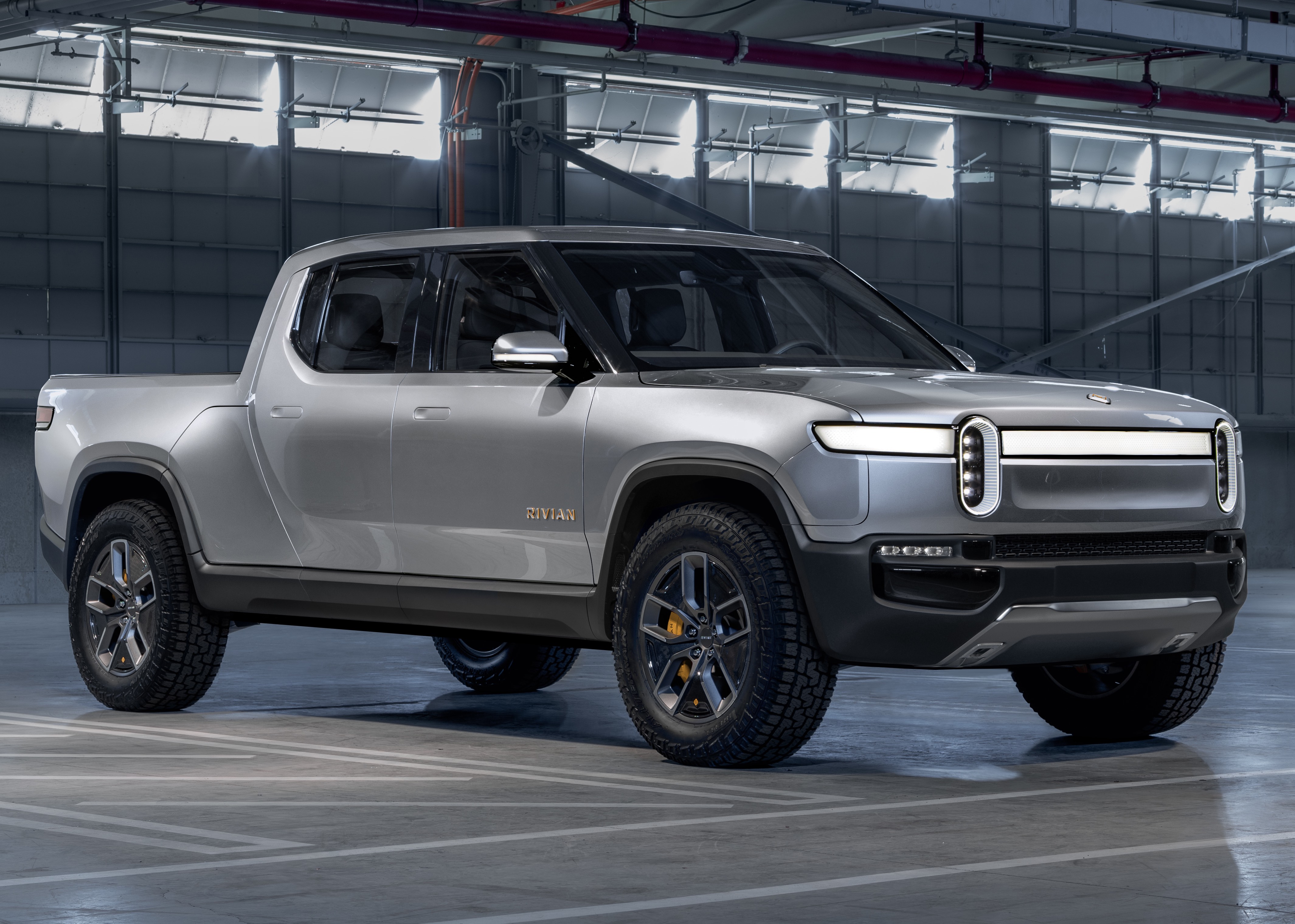
Tesla has matured greatly this year, as the company overcame the Model 3’s production hell and as Elon Musk dealt with the repercussions of his online behavior. Considering the pro-oil movement stirring in the country, though, Tesla might need to take even greater responsibilities in the immediate future. Being a first mover in the electric car revolution, Tesla has the potential to take the lead in bringing compelling vehicles that can compete with gasoline-powered cars on both performance and price. The company is already accomplishing this with the Model 3, as proven by the electric sedan’s impressive sales figures over the past months. So far, though, Tesla is yet to release vehicles that can truly take on the country’s gas guzzlers at a similar price point.
This might change next year, as Tesla is expected to reveal the Model Y SUV. The Model Y is designed to be the SUV counterpart of the Model 3 — powerful, practical, and attainable by the everyman — and if Elon Musk’s recent statements are any indication, the vehicle’s unveiling could be just around the corner. Tesla could very well be targeting the mainstream, seven-seat SUV market with the Model Y, with Musk recently describing the vehicle as a “midsize SUV” during an appearance at the Recode Decode podcast. Musk has also indicated that Tesla might be releasing its pickup truck earlier than expected.
Tesla, though, is not capable of pushing the EV revolution alone. Thus, it is pertinent for EV startups such as Rivian and Bollinger Motors to step up to the challenge and perhaps accelerate the development and release of their electric vehicles. Legacy automakers that have committed to an electrified future, such as Porsche and Jaguar, must expedite the release of compelling zero-emissions cars as well. Porsche and Jaguar have already taken a notable step with the Taycan and the I-PACE, but far more steps need to be taken.
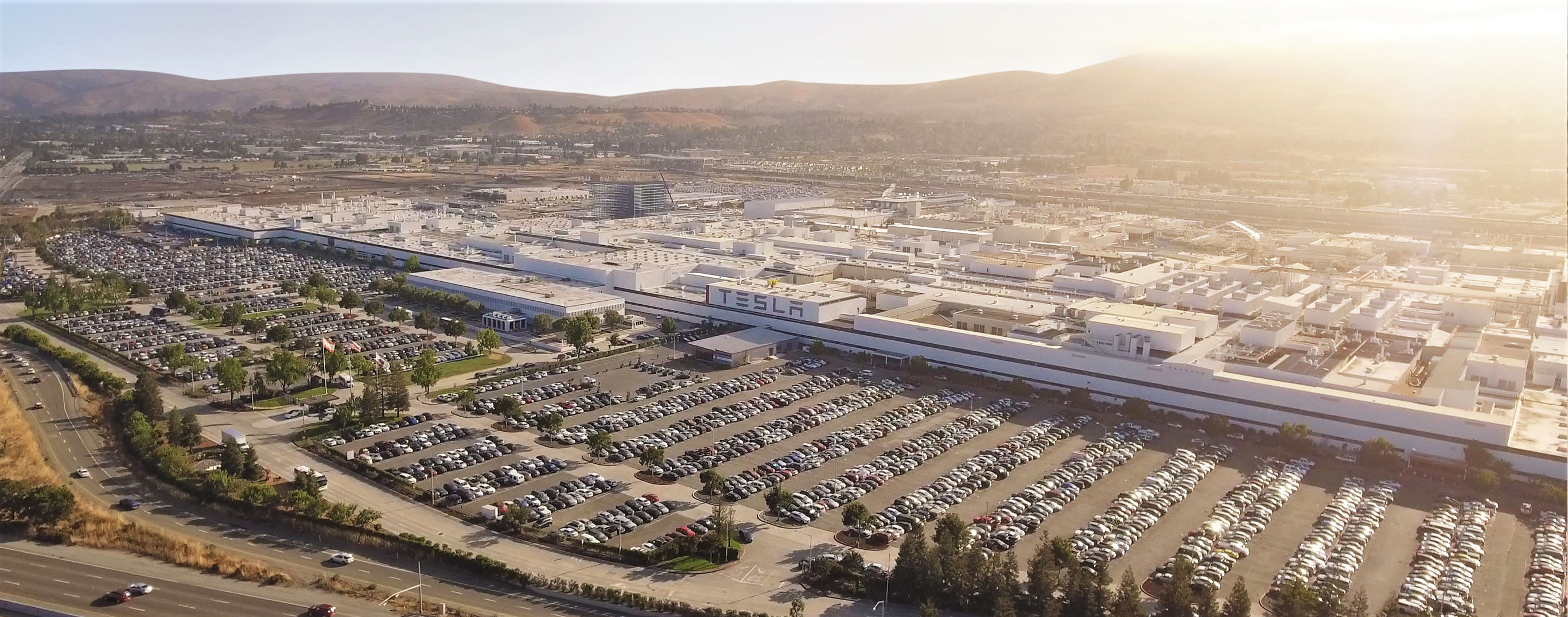
For its part, Tesla would best be served by a steadier hand in the coming quarters. With an aggressive campaign to keep the United States entrenched in oil ongoing, Tesla must lead in a manner that is quick, efficient, and steady. Thus, mistakes such as the over-automation of the Model 3 assembly line, as well as Elon Musk’s Twitter gaffes, should best be avoided. Tesla is already a fast-evolving company, having grown to a major automaker in all but 15 years. Considering the presence of the government’s oil-backed campaign, though, Tesla is at a point where it must evolve even faster than before.
For now, the US’ auto industry appears to be facing a crossroads. On the one hand, there are companies such as Tesla proving that electric cars such as the Model 3 are viable and competitive. On the other hand, there are groups lobbying to maintain the auto industry’s reliance on oil. If a recent public hearing in Colorado is any indication, though, it appears that support for sustainable transportation is very much present.
Last month, Americans for Prosperity representative Shari Shiffer-Krieger attended a public hearing about Colorado’s pending decision to follow California’s lead. Americans for Prosperity is among the oil industry’s supporters. In Iowa, the group joined the fight against an initiative that would make it easier for gas stations to install electric car charging stations, and in Illinois, the group discouraged state officials from considering subsidies for EVs. Speaking to Colorado’s regulators, Shiffer-Krieger argued that buyers in the rugged state preferred powerful SUVs over stricter emissions rules.
“Coloradans deserve much better,” she said.
Colorado’s regulators accommodated her, before allying themselves with California.

News
Tesla Full Self-Driving v14.2.2.5 might be the most confusing release ever
With each Full Self-Driving release, I am realistic. I know some things are going to get better, and I know some things will regress slightly. However, these instances of improvements are relatively mild, as are the regressions. Yet, this version has shown me that it contains extremes of both.

Tesla Full Self-Driving v14.2.2.5 hit my car back on Valentine’s Day, February 14, and since I’ve had it, it has become, in my opinion, the most confusing release I’ve ever had.
With each Full Self-Driving release, I am realistic. I know some things are going to get better, and I know some things will regress slightly. However, these instances of improvements are relatively mild, as are the regressions. Yet, this version has shown me that it contains extremes of both.
It has been about three weeks of driving on v14.2.2.5; I’ve used it for nearly every mile traveled since it hit my car. I’ve taken short trips of 10 minutes or less, I’ve taken medium trips of an hour or less, and I’ve taken longer trips that are over 100 miles per leg and are over two hours of driving time one way.
These are my thoughts on it thus far:
Speed Profiles Are a Mixed Bag
Speed Profiles are something Tesla seems to tinker with quite frequently, and each version tends to show a drastic difference in how each one behaves compared to the previous version.
I do a vast majority of my FSD travel using Standard and Hurry modes, although in bad weather, I will scale it back to Chill, and when it’s a congested city on a weekend or during rush hour, I’ll throw it into Mad Max so it takes what it needs.
Early on, Speed Profiles really felt great. This is one of those really subjective parts of the FSD where someone might think one mode travels too quickly, whereas another person might see the identical performance as too slow or just right.
To me, I would like to see more consistency from release to release on them, but overall, things are pretty good. There are no real complaints on my end, as I had with previous releases.
In a past release, Mad Max traveled under the speed limit quite frequently, and I only had that experience because Hurry was acting the same way. I’ve had no instances of that with v14.2.2.5.
Strange Turn Signal Behavior
This is the first Full Self-Driving version where I’ve had so many weird things happen with the turn signals.
Two things come to mind: Using a turn signal on a sharp turn, and ignoring the navigation while putting the wrong turn signal on. I’ve encountered both things on v14.2.2.5.
On my way to the Supercharger, I take a road that has one semi-sharp right-hand turn with a driveway entrance right at the beginning of the turn.
Only recently, with the introduction of v14.2.2.5, have I had FSD put on the right turn signal when going around this turn. It’s obviously a minor issue, but it still happens, and it’s not standard practice:
How can we get Full Self-Driving to stop these turn signals?
There’s no need to use one here; the straight path is a driveway, not a public road. The right turn signal here is unnecessary pic.twitter.com/7uLDHnqCfv
— TESLARATI (@Teslarati) February 28, 2026
When sharing this on X, I had Tesla fans (the ones who refuse to acknowledge that the company can make mistakes) tell me that it’s a “valid” behavior that would be taught to anyone who has been “professionally trained” to drive.
Apparently, if you complain about this turn signal, you are also claiming you know more than Tesla engineers…okay.
Nobody in their right mind has ever gone around a sharp turn when driving their car and put on a signal when continuing on the same road. You would put a left turn signal on to indicate you were turning into that driveway if that’s what your intention was.
Like I said, it’s a totally minor issue. However, it’s not really needed, and nor is it normal. If I were in the car with someone who was taking a simple turn on a road they were traveling, and they signaled because the turn was sharp, I’d be scratching my head.
I’ve also had three separate instances of the car completely ignoring the navigation and putting on a signal that is opposite to what the routing says. Really quite strange.
Parking Performance is Still Underwhelming
Parking has been a complaint of mine with FSD for a long time, so much so that it is pretty rare that I allow the vehicle to park itself. More often than not, it is because I want to pick a spot that is relatively isolated.
However, in the times I allow it to pull into a spot, it still does some pretty head-scratching things.
Recently, it tried to back into a spot that was ~60% covered in plowed snow. The snow was piled about six feet high in a Target parking lot.
A few days later, it tried backing into a spot where someone failed the universal litmus test of returning their shopping cart. Both choices were baffling and required me to manually move the car to a different portion of the lot.
I used Autopark on both occasions, and it did a great job of getting into the spot. I notice that the parking performance when I manually choose the spot is much better than when the car does the entire parking process, meaning choosing the spot and parking in it.
It’s Doing Things (For Me) It’s Never Done Before
Two things that FSD has never done before, at least for me, are slow down in School Zones and avoid deer. The first is something I usually take over manually, and the second I surprisingly have not had to deal with yet.
I had my Tesla slow down at a school zone yesterday for the first time, traveling at 20 MPH and not 15 MPH as the sign suggested, but at the speed of other cars in the School Zone. This was impressive and the first time I experienced it.
I would like to see this more consistently, and I think School Zones should be one of those areas where, no matter what, FSD will only travel the speed limit.
Last night, FSD v14.2.2.5 recognized a deer in a roadside field and slowed down for it:
🚨 Cruising home on a rainy, foggy evening and my Tesla on Full Self-Driving begins to slow down suddenly
FSD just wanted Mr. Deer to make it home to his deer family ❤️ pic.twitter.com/cAeqVDgXo5
— TESLARATI (@Teslarati) March 4, 2026
Navigation Still SUCKS
Navigation will be a complaint until Tesla proves it can fix it. For now, it’s just terrible.
It still has not figured out how to leave my neighborhood. I give it the opportunity to prove me wrong each time I leave my house, and it just can’t do it.
It always tries to go out of the primary entrance/exit of the neighborhood when the route needs to take me left, even though that exit is a right turn only. I always leave a voice prompt for Tesla about it.
It still picks incredibly baffling routes for simple navigation. It’s the one thing I still really want Tesla to fix.
Investor's Corner
Tesla gets tip of the hat from major Wall Street firm on self-driving prowess
“Tesla is at the forefront of autonomous driving, supported by a camera-only approach that is technically harder but much cheaper than the multi-sensor systems widely used in the industry. This strategy should allow Tesla to scale more profitably compared to Robotaxi competitors, helped by a growing data engine from its existing fleet,” BoA wrote.

Tesla received a tip of the hat from major Wall Street firm Bank of America on Wednesday, as it reinitiated coverage on Tesla shares with a bullish stance that comes with a ‘Buy’ rating and a $460 price target.
In a new note that marks a sharp reversal from its neutral position earlier in 2025, the bank declared Tesla’s Full Self-Driving (FSD) technology the “leading consumer autonomy solution.”
Analysts highlighted Tesla’s camera-only architecture, known as Tesla Vision, as a strategic masterstroke. While technically more challenging than the multi-sensor setups favored by rivals, the vision-based approach is dramatically cheaper to produce and maintain.
This cost edge, combined with Tesla’s rapidly expanding real-world data engine, positions the company to scale robotaxis far more profitably than competitors, BofA argues in the new note:
“Tesla is at the forefront of autonomous driving, supported by a camera-only approach that is technically harder but much cheaper than the multi-sensor systems widely used in the industry. This strategy should allow Tesla to scale more profitably compared to Robotaxi competitors, helped by a growing data engine from its existing fleet.”
The bank now attributes roughly 52% of Tesla’s total valuation to its Robotaxi ambitions. It also flagged meaningful upside from the Optimus humanoid robot program and the fast-growing energy storage business, suggesting the auto segment’s recent headwinds, including expired incentives, are being eclipsed by these higher-margin opportunities.
Tesla’s own data underscores exactly why Wall Street is waking up to FSD’s potential. According to Tesla’s official safety reporting page, the FSD Supervised fleet has now surpassed 8.4 billion cumulative miles driven.
Tesla FSD (Supervised) fleet passes 8.4 billion cumulative miles
That total ballooned from just 6 million miles in 2021 to 80 million in 2022, 670 million in 2023, 2.25 billion in 2024, and a staggering 4.25 billion in 2025 alone. In the first 50 days of 2026, owners added another 1 billion miles — averaging more than 20 million miles per day.
This avalanche of real-world, camera-captured footage, much of it on complex city streets, gives Tesla an unmatched training dataset. Every mile feeds its neural networks, accelerating improvement cycles that lidar-dependent rivals simply cannot match at scale.
Tesla owners themselves will tell you the suite gets better with every release, bringing new features and improvements to its self-driving project.
The $460 target implies roughly 15 percent upside from recent trading levels around $400. While regulatory and safety hurdles remain, BofA’s endorsement signals growing institutional conviction that Tesla’s data advantage is not hype; it’s a tangible moat already delivering billions of miles of proof.
News
Tesla to discuss expansion of Samsung AI6 production plans: report
Tesla has reportedly requested an additional 24,000 wafers per month, which would bring total production capacity to around 40,000 wafers if finalized.

Tesla is reportedly discussing an expansion of its next-generation AI chip supply deal with Samsung Electronics.
As per a report from Korean industry outlet The Elec, Tesla purchasing executives are reportedly scheduled to meet Samsung officials this week to negotiate additional production volume for the company’s upcoming AI6 chip.
Industry sources cited in the report stated that Tesla is pushing to increase the production volume of its AI6 chip, which will be manufactured using Samsung’s 2-nanometer process.
Tesla previously signed a long-term foundry agreement with Samsung covering AI6 production through December 31, 2033. The deal was reportedly valued at about 22.8 trillion won (roughly $16–17 billion).
Under the existing agreement, Tesla secured approximately 16,000 wafers per month from the facility. The company has reportedly requested an additional 24,000 wafers per month, which would bring total production capacity to around 40,000 wafers if finalized.
Tesla purchasing executives are expected to discuss detailed supply terms during their visit to Samsung this week.
The AI6 chip is expected to support several Tesla technologies. Industry sources stated that the chip could be used for the company’s Full Self-Driving system, the Optimus humanoid robot, and Tesla’s internal AI data centers.
The report also indicated that AI6 clusters could replace the role previously planned for Tesla’s Dojo AI supercomputer. Instead of a single system, multiple AI6 chips would be combined into server-level clusters.
Tesla’s semiconductor collaboration with Samsung dates back several years. Samsung participated in the design of Tesla’s HW3 (AI3) chip and manufactured it using a 14-nanometer process. The HW4 chip currently used in Tesla vehicles was also produced by Samsung using a 5-nanometer node.
Tesla previously planned to split production of its AI5 chip between Samsung and TSMC. However, the company reportedly chose Samsung as the primary partner for the newer AI6 chip.








